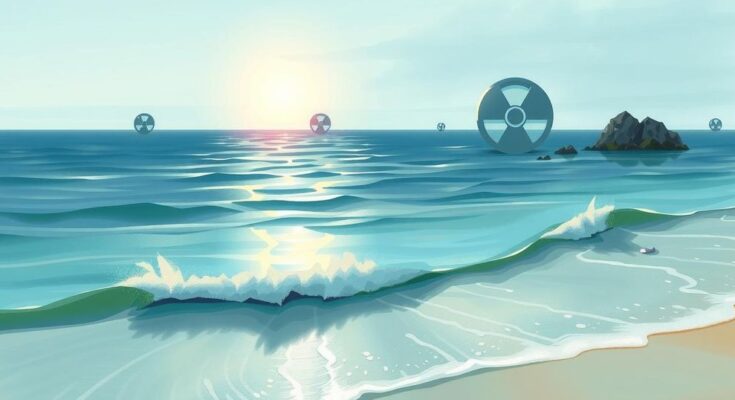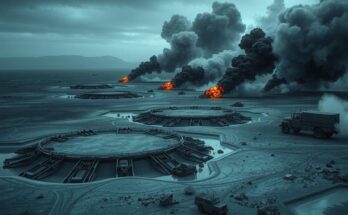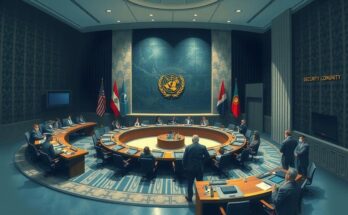Qatar’s Prime Minister warns that attacking Iran’s nuclear sites could lead to severe contamination of Gulf waters, threatening the water supply for millions in Qatar, the UAE, and Kuwait. He advocates for diplomatic solutions to avoid military conflict, given the dire implications for regional survival. The U.S. maintains pressure on Iran while tensions escalate as Iran asserts its position against external bullying regarding negotiations.
In a recent statement, Qatar’s Prime Minister, Sheikh Mohammed bin Abdulrahman Al Thani, expressed concerns regarding the potential repercussions of military action against Iran’s nuclear facilities. He asserted that such an attack could lead to the complete contamination of the Gulf waters, jeopardizing the livelihoods of millions in Qatar, the UAE, and Kuwait, who rely predominantly on desalinated water from the Gulf.
The Prime Minister highlighted the dire implications of contamination, stating that it could result in “no water, no fish, nothing … no life” in the region. This alarming prediction underscores the vulnerability faced by these nations, which struggle with limited natural water reserves amidst growing tensions with Iran.
U.S. President Donald Trump’s administration has indicated a desire to negotiate a new nuclear agreement with Iran, simultaneously reinstating a “maximum pressure” strategy to isolate Iran economically. Sheikh Mohammed advocated for diplomatic negotiations to avert military action, cautioning that conflict would catalyze a broader war throughout the region.
During a conversation with conservative media figure Tucker Carlson, he affirmed Qatar’s stance against military intervention, emphasizing the need for peaceful resolution. Iran, for its part, maintains that it does not seek nuclear weapons and has dismissed external pressures during negotiations.
Furthermore, Sheikh Mohammed disclosed that Qatar had assessed the risk of exhausting its potable water supply within three days following any military strike on Iran’s nuclear sites, prompting significant infrastructure developments such as the construction of large concrete water reservoirs. The Prime Minister urged for heightened awareness regarding the proximity of Iran’s nuclear facilities to various Gulf states, with notable implications for regional safety.
Despite Qatar’s strategic alliance with the United States and its hosting of a major American military base, the nation preserves its diplomatic and economic relationships with Iran, including joint management of a significant gas field. The historical context includes Trump’s withdrawal from the prior nuclear agreement in 2018, which corresponded with Iran’s subsequent escalation of nuclear activity beyond agreed limits.
The article highlights Qatar’s Prime Minister’s grave warnings regarding the potential fallout from military action against Iran’s nuclear facilities. It emphasizes the interconnectedness of regional water security and the pressing need for diplomatic solutions. Sheikh Mohammed’s remarks reveal the critical situation in the Gulf, highlighting the urgent importance of avoiding military conflict to protect both human life and vital resources in the region.
Original Source: www.hindustantimes.com




